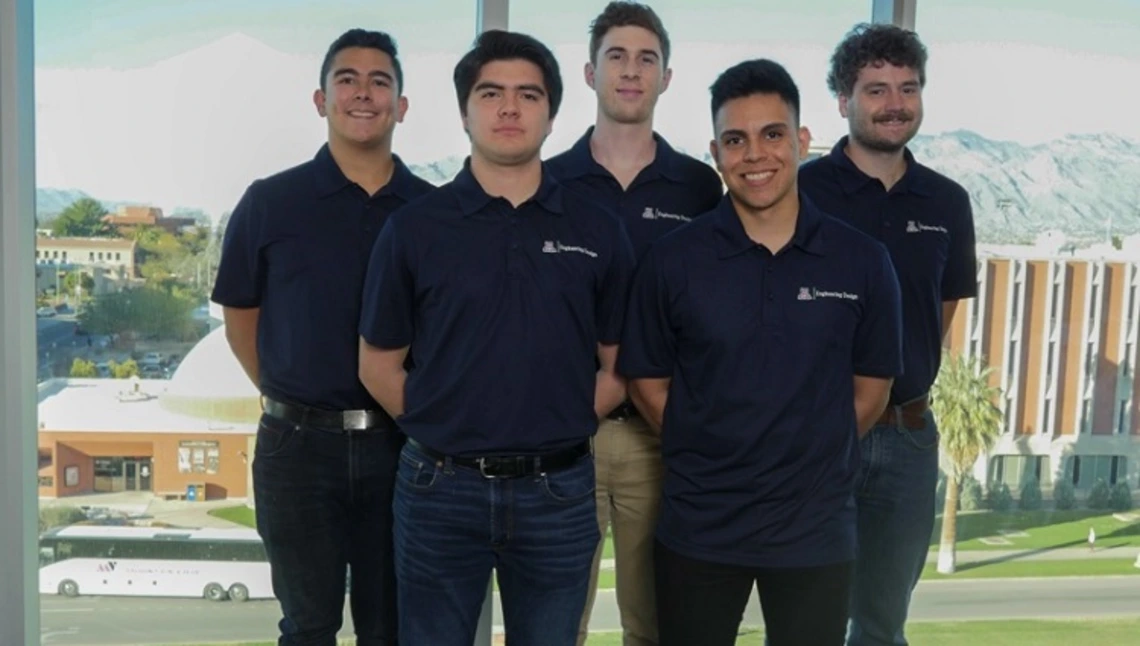BME Students Update Senior Design Project for Coronavirus

Units across campus have shifted from in-person interactions to virtual meetings, and Interdisciplinary Capstone is no exception. But, since engineering design projects are centered around construction, collaboration and other hands-on work, many teams have had to apply their engineering know-how and problem-solving skills to adapt their projects to new circumstances.
One such quick-minded group is Team 19063, who are creating an epileptic seizure detection device for sponsor Intel. Team lead and BME student Alejandro Ortega said the opportunity to build a device that could meaningfully impact people’s lives made this project his number one choice.
Their original task was to build an open source system that could detect when a seizure is occurring and notify a person’s caregiver. The team planned a series of clinical trials in Colombia to collect data with their optical sensors and train an artificial intelligence model to recognize seizures, but they had to cancel the trials due to the outbreak.
They’ve shifted gears to focus on creating an easy-to-use data collection system that will train an artificial intelligence model. Any caregiver can operate the system to gather and tag seizure information, helping teach the model how to recognize a seizure. By sharing their results and documentation with the open source community, the team hopes the system can eventually be expanded into a device that warns caregivers when a seizure is occurring.
“This way, our analysis and efforts are not wasted. The original intent of helping people is preserved and will hopefully grow in the open source community with proper documentation,” Ortega said. “I’ve gained skills that will help me thrive in my career, because I was not afraid of taking on a task that was outside of my discipline. And that challenged me to learn and create something absolutely new.”
